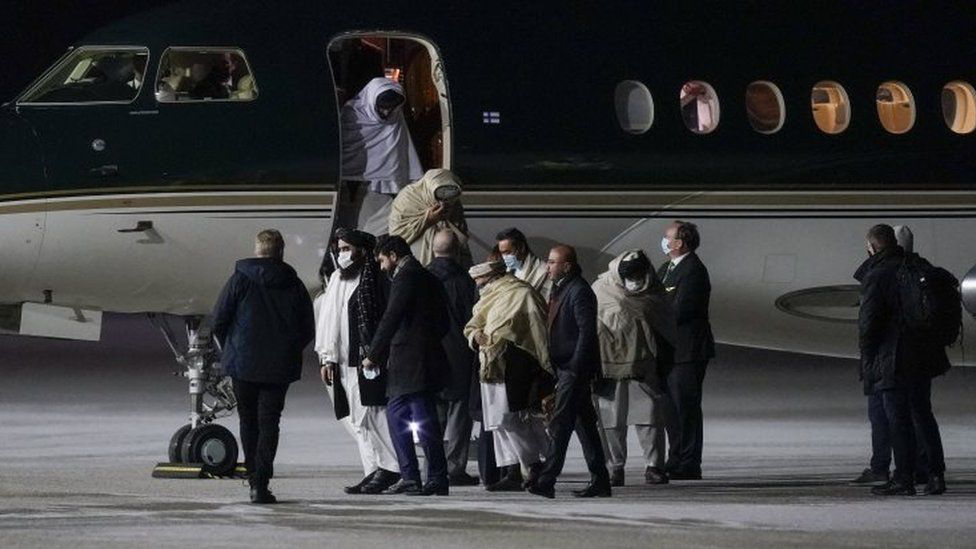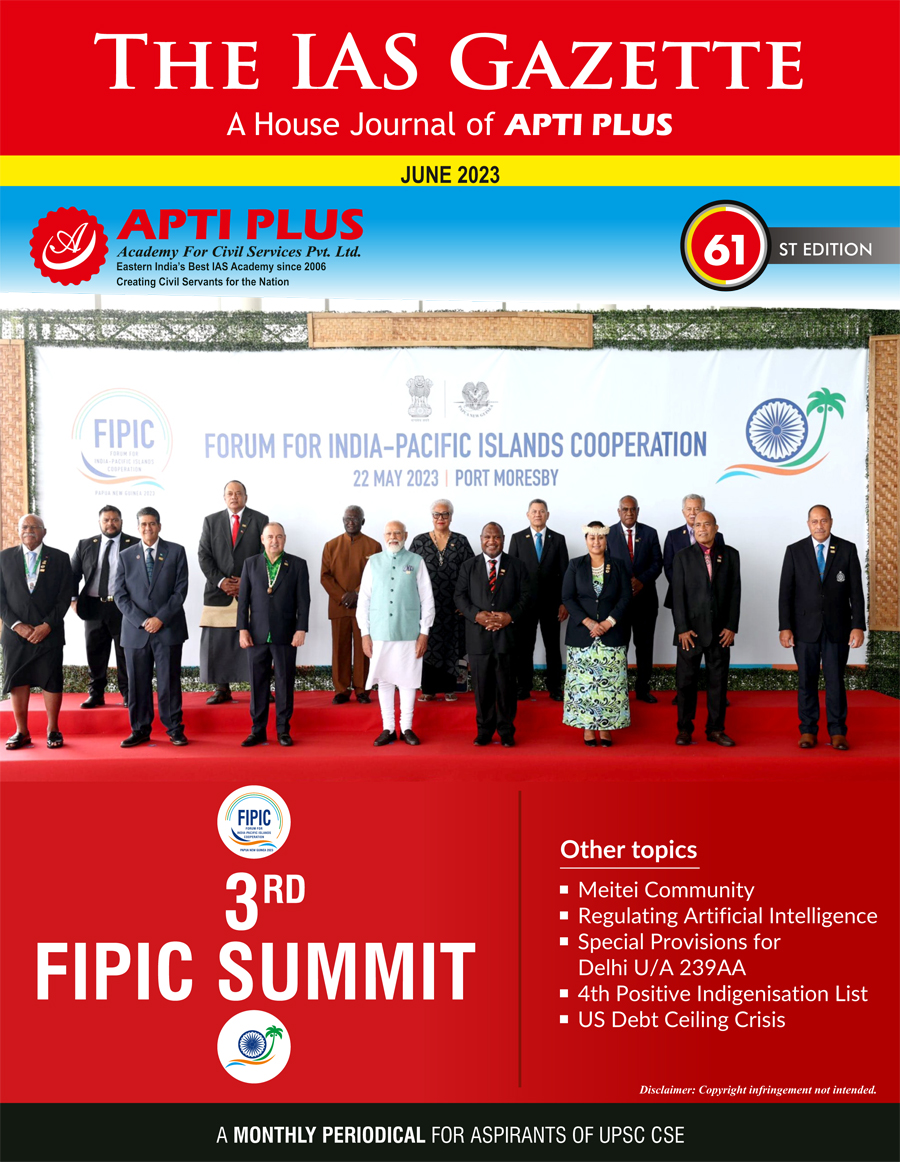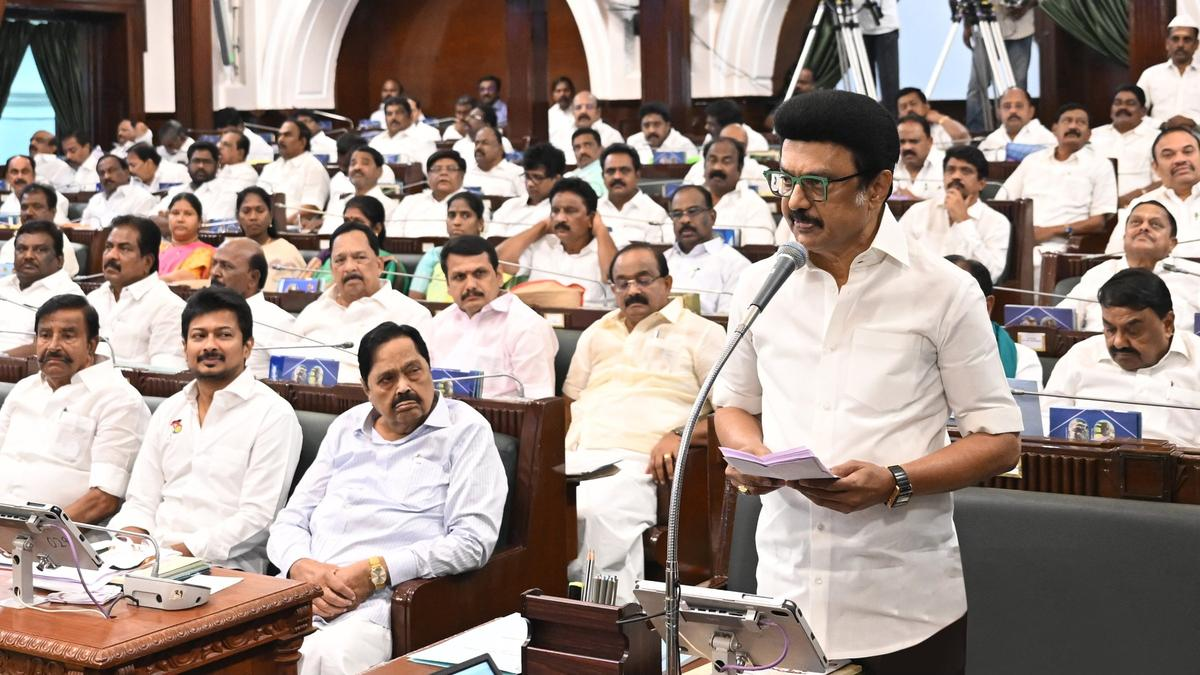Description

Disclaimer: Copyright infringement not intended.
Context
- A report on a peace conference held in Oslo, Norway, where representatives from the Taliban met with Indian and Pakistani special envoys, as well as officials from other countries and international diplomats.
Details
- Taliban representatives met with Indian and Pakistani special envoys and international diplomats in Oslo.
- The talks were organized by the Norwegian government to address the impasse in negotiations.
- Afghan diaspora groups criticized the talks for legitimizing the Taliban.
Reasons for the Talks:
- The Norwegian Foreign Minister emphasized the importance of not isolating Afghanistan.
- Isolation could worsen the situation for the Afghan people and create opportunities for terrorist groups like ISIS.
- Three Afghan civil servants, not top leadership, participated in the talks to discuss major challenges in the country.
Humanitarian Crisis in Afghanistan:
- Afghanistan is facing a humanitarian crisis with acute food shortages and human rights violations, including the denial of education and employment to women by the Taliban.
India's Involvement:
- India reopened its mission in Kabul in June 2022 and maintains a technical team overseeing aid and development initiatives.
- India's recent shipment of 20,000 tonnes of wheat arriving via the Chabahar port in Iran was discussed during the talks.
Participants and Discussions:
- Taliban officials held closed-door talks with special envoys from the U.S., the U.K., Norway, Qatar, India, and Pakistan, as well as the head of UNAMA.
- Members of Afghan civil society, including a woman negotiator and a leading lawyer, also participated.
- Concerns were raised about the decision to halt girls' education in Afghanistan.
Priority Areas for Stabilization:
- Discussions highlighted priority areas to stabilize the situation in Afghanistan.
- The Taliban regime received admiration from the U.S. and European delegations for cracking down on opium production in the country.
Criticism and Legitimacy Concerns:
- Afghan diaspora groups, including those in Norway, criticized the talks for legitimizing the Taliban.
- Critics argue that engaging with the Taliban may give them undue credibility and reward their actions.
.jpeg)
About Taliban
Emergence in the 1990s:
- The Taliban emerged in the early 1990s in Afghanistan, primarily consisting of Afghan Pashtun students who were educated in religious schools in Pakistan.
- They gained popularity by promising to bring stability, law, and order to a war-torn Afghanistan.
Rise to Power:
- By 1996, the Taliban had captured Kabul and established the Islamic Emirate of Afghanistan, controlling around 90% of the country.
- Their strict interpretation of Islamic law and harsh treatment of women drew international attention and condemnation.
Control and Rule:
- Under Taliban rule, Afghanistan became a safe haven for terrorist groups, including Al-Qaeda, led by Osama bin Laden.
- They imposed a severe version of Sharia law, restricting women's rights, banning forms of entertainment, and enforcing punishments such as public executions and amputations.
- The destruction of ancient Buddha statues in Bamiyan in 2001 drew global outrage.
International Response:
- The Taliban's support for terrorism led to international isolation and sanctions imposed by the United Nations.
- The United States and its allies invaded Afghanistan in October 2001 as a response to the 9/11 attacks, with the goal of removing the Taliban from power and dismantling Al-Qaeda.
Taliban's Insurgency:
- Following their removal from power, the Taliban regrouped and launched an insurgency against the Afghan government and international forces.
- They found support among disenchanted segments of the Afghan population due to corruption, instability, and civilian casualties resulting from the conflict.
Negotiations and Fragmentation:
- Over the years, several attempts were made to engage the Taliban in peace talks to find a political solution to the conflict.
- The Taliban fragmented into different factions, with some more open to negotiations and others continuing the armed struggle.
Return to Power in 2021:
- In August 2021, the Taliban swiftly captured major Afghan cities and ultimately took control of Kabul, leading to the collapse of the Afghan government and President Ashraf Ghani's departure.
- The takeover was facilitated by the withdrawal of international troops, signaling the end of a 20-year military presence in Afghanistan.
International Recognition and Concerns:
- The Taliban's return to power raised concerns about the future of human rights, particularly women's rights, and the potential for Afghanistan to become a safe haven for terrorists once again.
- Various countries and international organizations engaged in discussions with the Taliban, seeking assurances regarding inclusive governance, human rights, and the prevention of terrorism.
Ongoing Challenges:
- The Taliban's rule faces significant challenges, including the need to address the
- country's economic crisis, provide basic services to the population, and gain international recognition and support.
- The international community closely watches the Taliban's actions and commitments, particularly regarding human rights, terrorism, and governance, as Afghanistan enters a new phase under their control.
|
PRACTICE QUESTION
Q) Analyze the role of neighboring countries and global powers in shaping the future trajectory of Afghanistan under Taliban rule. (150 words)
|

https://epaper.thehindu.com/ccidist-ws/th/th_delhi/issues/39875/OPS/GS2BC40LH.1+G5KBC4NF4.1.html















